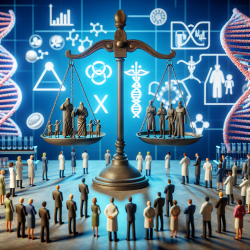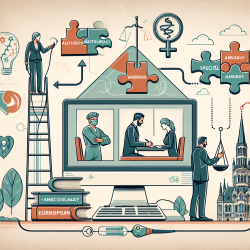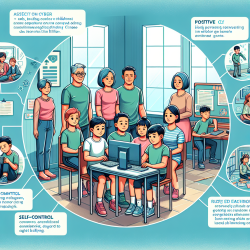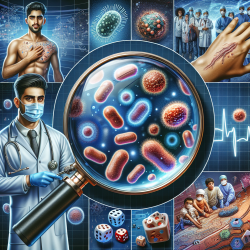Introduction
As practitioners dedicated to improving outcomes for children, it is crucial to stay informed about the latest advancements and ethical considerations in therapeutic interventions. One such advancement is therapeutic human genome editing, a field that promises to eradicate genetic diseases but also raises significant ethical questions. This blog explores the findings from the scoping review titled Ethical Perspectives of Therapeutic Human Genome Editing From Multiple and Diverse Viewpoints: A Scoping Review, offering insights that can enhance your practice and encourage further research.
Philosophical and Theological Perspectives
The review highlights that from a philosophical standpoint, therapeutic genome editing is generally seen as ethically acceptable, particularly when it aims to improve the human condition. However, issues such as human dignity and the non-identity problem remain contentious. Theological perspectives, including those from Islam, Christianity, and Judaism, generally support therapeutic applications, provided they align with religious doctrines and ethical guidelines.
Public Perspectives
Public opinion on therapeutic genome editing varies globally. While many regions, including the USA and parts of Europe, show support when the medical benefits are emphasized, concerns about heritable edits and potential long-term effects persist. In contrast, regions like Oceania express skepticism, particularly regarding the impact on future generations.
Research Ethics
Ethical considerations in research are paramount, especially regarding informed consent and the autonomy of future generations. The review underscores the need for stringent regulations to ensure ethical compliance, particularly in trials involving women and potential impacts on offspring.
Implications for Practitioners
For practitioners, understanding these ethical dimensions is crucial for informed decision-making and advocacy in therapeutic interventions. The review suggests that while therapeutic genome editing holds promise, it requires careful consideration of ethical guidelines and public perceptions to ensure responsible implementation.
Conclusion
Therapeutic human genome editing is a field with immense potential but also significant ethical challenges. Practitioners are encouraged to engage with the ethical discourse, stay informed about regulatory developments, and consider the diverse perspectives highlighted in this review. This approach will not only enhance practice but also contribute to the responsible advancement of therapeutic interventions.
To read the original research paper, please follow this link: Ethical Perspectives of Therapeutic Human Genome Editing From Multiple and Diverse Viewpoints: A Scoping Review.










